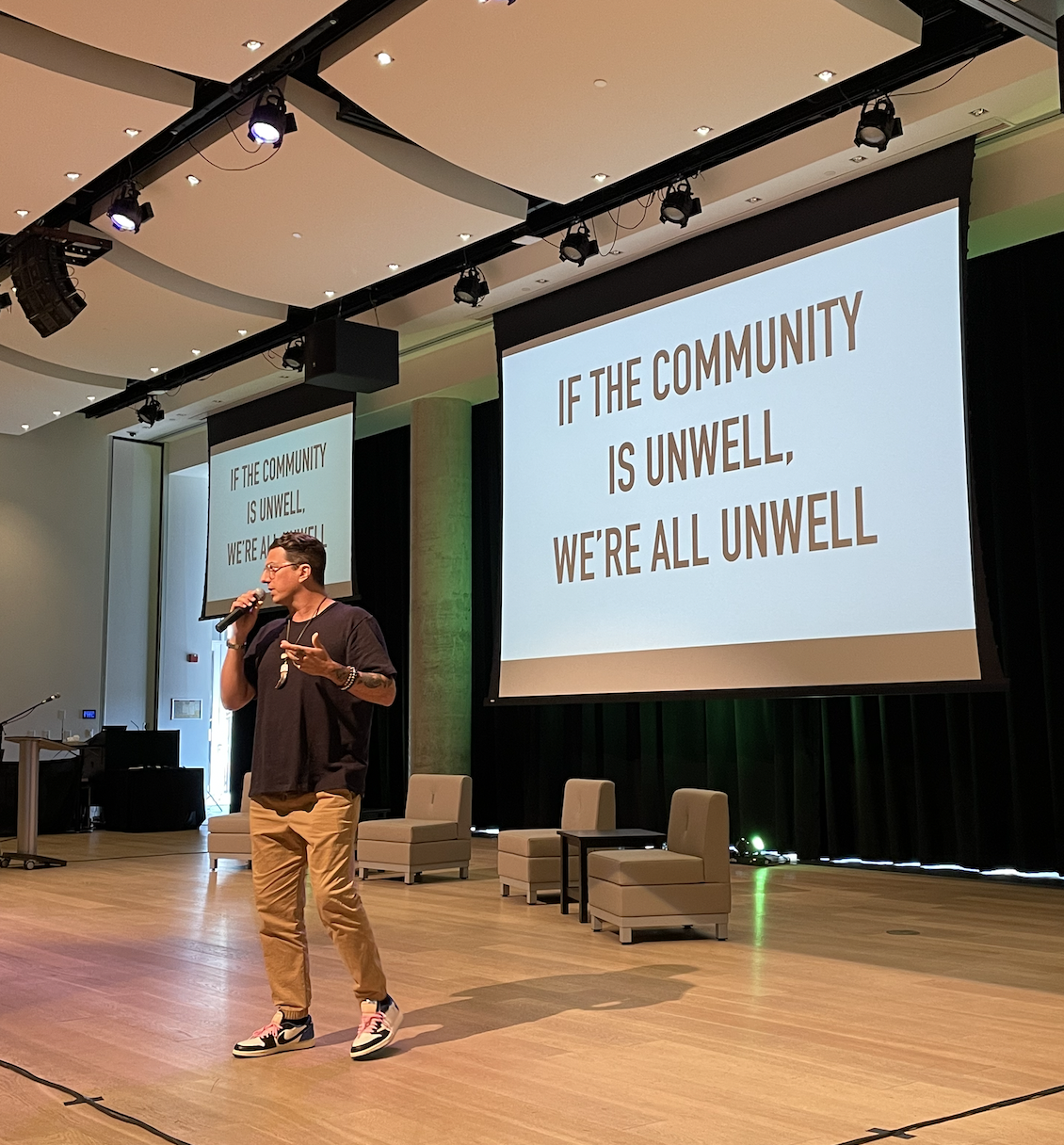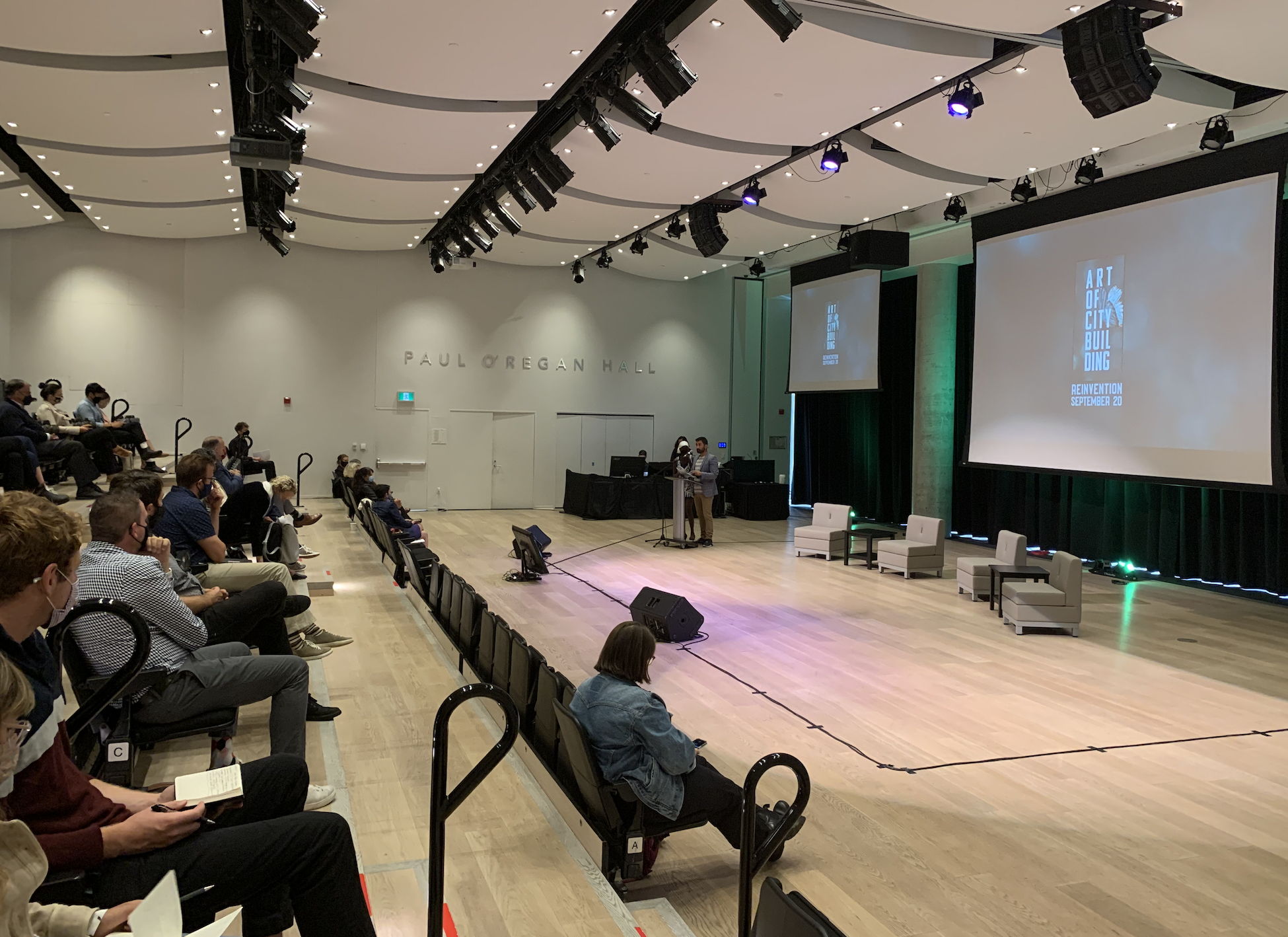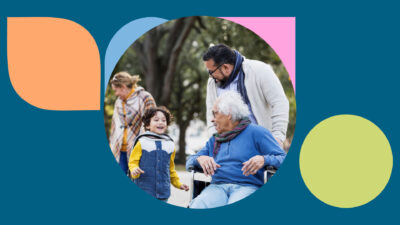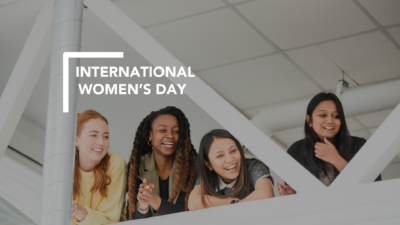“If we’re to build the best version of this city, what is that? What do we aspire to be? What are our goals as a community?” Last month, at the opening of the Art of City Building conference, Halifax’s Mayor Mike Savage posed these questions to the in-person and virtual audience.
As one of the supporting partners of this conference, we are excited to dig into these questions, and to take in and reflect on the learnings from the incredible placemakers, city builders, community developers, and organizers who presented at the hybrid conference.
The Art of City Building conference has just celebrated its fifth year, with the theme of this year’s conference being “Reinvention”. As conference organizer, Jen Angel, CEO of Develop NS, stated in her opening remarks “If there was ever a need for fundamental transformation, it’s now. It’s the dreaming and it’s the doing.”
The conference was started in 2017 when the organizing team came together and saw a common thread of change across the city. Harnessing a deep love for this place, they realized that the challenges facing Halifax were not unique to this place, but uniquely Halifax versions of overall societal challenges. So, they invited their community to come together and to look around the world, across Canada, and within our city for inspiration and big ideas to share.
Every year the conference has engaged our city in conversations that challenge us, that help us grow and connect with one another. This year the speakers shared lessons on how to think more regeneratively, inclusively, and holistically about our cities as we build them. Presenting on topics such as sacred civics and reconciliation, inclusive city building, and the importance of resilience.
Zita Cobb, CEO of the Shorefast Foundation, and Innkeeper of Fogo Island Inn gave the morning’s keynote presentation focusing on the power of place. She shared the history of Fogo Island, Newfoundland, and spoke to the resiliency of her community. Using the practice of Asset Based Community Development her team, along with the community, worked to harness the local assets to support sustainable economic development (e.g., tourism and hospitality).
They have created a fascinating way to capture economic outcomes on the island using an “Economic Nutrition Label” which uses the idea “what if everything you bought told you where exactly your money was going.” As more consumers shift to wanting to make positive impacts through their purchases, this labeling system allows them to see the impact of their purchase on a local and global level.
Zita shared that the Shorefast Foundation has a goal of creating a global network of resilient and economically empowered, place-specific communities. She shared a quote from Jane Addams – “The good we secure for ourselves is precarious and uncertain until it is secured for all of us and incorporated into our common life.”
Another speaker that left a powerful message with the audience was Al Wiebe, Peer Engagement Specialist for the CAEH Housing 1st Team in Winnipeg. As an advocate for lived experience, Al spoke of the power of hope and how it is a vital part of any conversation about homelessness. One quote that particularly stood out was “To be resilient you have to believe that you can. And to have that belief you must have hope you can get there. “
He shared that it’s so important to have someone with lived experience being at the table when decisions are being made. They are the knowledge keepers. They can lend context to the conversations happening around the city. This is a crucial thing to keep in mind for all organizations doing engagement work and developing strategies that will affect marginalized communities. This had resonance for us because, at Davis Pier, we aspire to achieve authentic inclusion of those with lived experience in all of our consulting and social innovation work, including our use of social innovation labs to solve complex societal issues.
One of the session themes was “Reinventing Resilience”, during which a highlight was hearing from Mark Brand, who leads A Better Life Foundation and is a Stanford fellow, Professor of Innovation and Design Thinking. He shared some key learnings from his experience at Stanford Design School including the impact of isolation on humans, which is the single biggest cause of addiction and instability. It’s something that many of us felt for possibly the first time during Covid lockdowns, but it’s important to note that those often at the margins of society have always been grappling with isolation. His core message was that “If the community is unwell, we’re all unwell.”

Resilience is a major contributor to overall ‘wellbeing’, as are a number of the other themes from the conference such as community inclusion and eliminating social isolation. Wellbeing measurement is the focus of research that Pier Labs is currently doing with Develop NS to help assess the benefits of its placemaking initiatives. Evidence shows that the creation of enjoyable, inclusive, and culturally rich spaces contributes to people’s life satisfaction and happiness, which in turn are correlated with key measures of quality of life such as physical health, mental health, and social inclusion.
The final session of the day was themed “Reinventing Public Places” and speakers Mitchell Silver, Principal, McAdams, Durham and Liz Ogbu, Founder and Principal, Studio O, San Francisco, spoke about the importance of care and healing within community development.
Mitchell drew from his work as the former commissioner for the New York City Parks Department. He shared “The real action happens in the public realm. Past generations were consumers of goods. New generations are consumers of experiences. We should not be just designers and planners, but experience builders.”
During his time in the position, he created a design precedent for new parks with equity at the core of all new developments. Honing in on the importance of inclusion and creating spaces where everyone can say “I feel welcome here. I belong here.”
Following Mitchell’s presentation was Liz Ogbu who spoke of her work in the spatial justice field and how it can be used as a tool for healing. She questioned the all too familiar story of gentrification and asked, “Why is it that we treat culture erasure and economic displacement as inevitable?” She called on developers and policymakers to make a commitment to build people’s capacity to stay in their communities where they feel whole. She also has a great Ted Talk on the topic that you can check out here.
Overall, the conference was deeply inspiring. Hearing hyper-local examples such as the Every One. Every Day. work happening in the North End to international experiences such as the “Care Blocks” and economies of care being developed by Gabriella Gomez-Mont and her team in Bogotá, the conference helped stretch our minds and imagine a better Halifax, and how we can help make it happen.
The Halifax we should want to live and thrive in is the Halifax we build together. – Mayor Mike Savage



